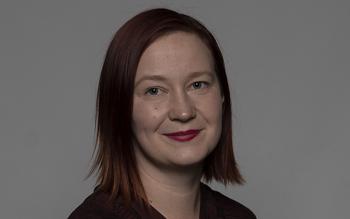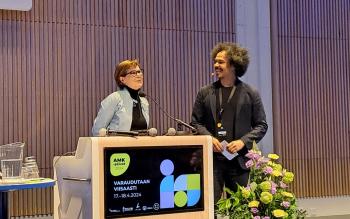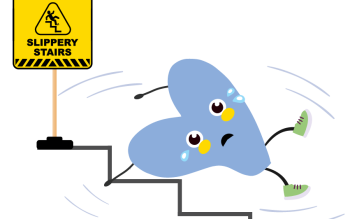
3 + 1 ways to do things differently
In this column Rosa Weckman talks about theories and ways to influence your actions, feelings and thoughts.

Body
We humans are complex and strange creatures. Time and time again, we find ourselves facing the same challenges - and successes. Isn't that something you never learn? Year after year, we make bigger and bigger promises for the New Year, and without going very far into January, the promises we made are history.
One reason life changes fail, is the return to the same old routines. Many researchers say that the vast majority, up to 80%, of our daily thinking is done on autopilot, i.e. we repeat familiar patterns. You may have noticed how difficult it is to change a habitual habit, such as browsing social media as soon as the opportunity arises. The same is true for our beliefs about ourselves. If we focus on our own weaknesses, we will see them more and more often.
Sometimes students wonder out loud, whether it is even possible to change their habits - for example, leaving coursework until the last night.
I want to assure you that it is possible to change habits, but it takes persistent work.
Circular thinking
Psychology offers a solution to changing habits or thoughts, or at least a way of understanding the circles of activity that influence them. Indeed, it has been studied that our thoughts, feelings and actions influence each other in a continuous cycle. Let's take a practical example. Being late for a course assignment triggers feelings of anxiety in many people. This in turn can lead to avoidance behaviour, such as immersion in social media.
Avoidance behaviour can lead to thoughts that studying is difficult or that you are not good enough. Thoughts of inferiority often lead to increased feelings of anxiety and avoidance behaviour. And so the circle is complete.
The keys to a solution
The hope that this theoretical framework brings, is that you can influence your own behaviour, feelings and thoughts if you just recognise them. Once the cycle is identified, you can try to break it by changing one aspect: your feelings, thoughts or actions. And by committing to that change.
1) To influence thoughts, you can try to change your perspective. Perhaps the late coursework was not about your own inferiority but about accumulating pressures. Perhaps the situation is influenced by other aspects of life, such as prioritising family or friends. Or maybe occasional lateness is common and human.
2) Changing your behaviour can i means more careful planning and anticipation in a learning context. Or experimenting with new learning styles.
3) Changing emotions, in turn, could mean working with emotional recognition and embodiment. How does anxiety, joy or even compassion feel in the body? Are you able to increase or ease the feeling either by calming or activating your body? The remedy for anxiety can be found in activating the body, for example through walking, or in arousing self-compassion, for example through meditation.
+1 You can also turn a negative cycle into a positive one by strengthening gratitude and pausing for successes. By focusing on what works and what successes - even small ones - contribute to our goals, we can nurture all the good in our lives and watch it grow.
The holidays are a good time for reflection and looking to the future. Take a moment to pause and reflect on your successes. Give thanks to yourself. Perhaps doing things differently in the coming year could start with talking to yourself more gently.





